‘For the past eight years, Barcelona mayor Ada Colau and her council have been attempting to drag the city into the 21st century.’ In the first of three opinion pieces, Michael Bunn looks at three women in Spanish politics.
So the doorbell rang, and I opened it to find a woman standing there, pen and clipboard poised.
‘Hi!’ she said, ‘I’m Carmen. From the City Council. Would you mind answering a questionnaire about your experience of living in Barcelona?’
Once she’d noted down where I was from (England), my age (64) and profession (journalist / translator), we got down to the questions: what did I think about Barcelona’s public transport system, rubbish collection, traffic, civic amenities, etc., all graded on a scale of 1 to 10. But when she turned to the subject of safety on Barcelona’s streets and I told her that I’d never felt safer living in any other town or city, she nearly dropped her clipboard.
‘What? Really?’ she said, her eyes wide in amazement. ‘But just about everyone your age I’ve spoken to says they’re too scared to go out after 9pm!’
This didn’t surprise me. If you talk to people in cafés or eavesdrop on conversations at bus stops, you’ll often hear the same opinion – how the city has gone to the dogs and you can’t walk down the street these days without being waylaid by evildoers.

While it’s true that Barcelona has long been a haven for pickpockets, these tend to congregate in specific areas in the city centre, where the tourists roam. But ours is essentially a safe city, and I feel perfectly relaxed wandering through its streets late at night.
I would be reluctant to do so in London, where you would run the risk of crossing paths with a roaring pack of lads, their collective mood on a knife-edge after an evening of multiple pints of Stella with Stoli chasers; wrong place, wrong time, and passers-by might get off lightly with an earful of abuse, or they might just as well end up on the wrong end of a good kicking. And it’s not just London – I would be equally wary of walking through any English market town on a Saturday night after the pubs had closed.
Barcelona in comparison, I explained to Carmen, is a veritable Toytown – a feelgood urban space where people have this amazing ability to go out and drink to excess without then feeling the need to do physical damage to others.
So why is it that so many Barcelona-dwellers have this perception of the city as a place fraught with danger? It’s not just down to them blindly accepting the malicious tropes and slogans from right-wing politicians about the danger posed by immigrants; in the case of Barcelona in particular, it also has quite a lot to do with the city’s mayor, and the media’s perception of her.
Ada Colau came to public notice in 2009 as the spokesperson for an anti-eviction activist group set up to draw attention to Barcelona’s housing problems. Then in 2015 she became the city’s first woman mayor, riding the wave of anti-establishment feeling after shocking revelations of widespread corruption in Spanish politics. But then to everyone’s surprise (and unlike nearly every other successful political candidate in world history), no sooner had she gained power than Colau immediately proceeded to put her election pledges into practice.
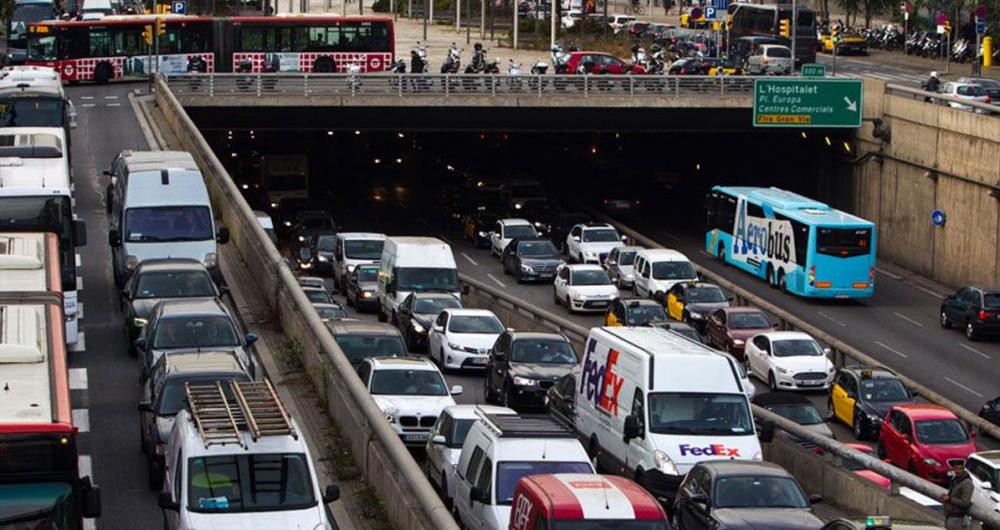
To begin with, she brought to an end the time-honoured procedure in many parts of Spain of municipal contracts being awarded, year after year, to the same small group of companies who maintain an incestuous, often illegal business relationship with the city councillors. Now, Barcelona’s leading contractors were shocked to find that they would have to submit bids for contracts to clean the city’s streets, repair the roads, and so on, whereas before it had simply been a matter of sweet-talking the respective councillor over a lavish meal at a fancy restaurant and maybe a cash-filled envelope or two.
But Colau didn’t stop there – to the horror of the ruling elites, she expropriated a number of empty buildings from banks, residential properties that had been repossessed after the 2009 economic crisis, which saw many people default on their mortgage payments and lose their homes. In a move that must have been hugely satisfying for Colau, given her activist past, she promptly converted these buildings into rent-controlled social housing.
Colau took note of the EU’s warnings on excessive air pollution in the city (principally nitrogen dioxide, caused by traffic exhaust) and her council set about reducing the number of traffic lanes and parking spaces in the city. She then went on to pedestrianise a large network of streets and blocks, creating green, vehicle-free areas where people could sit and chat and children could play safely.
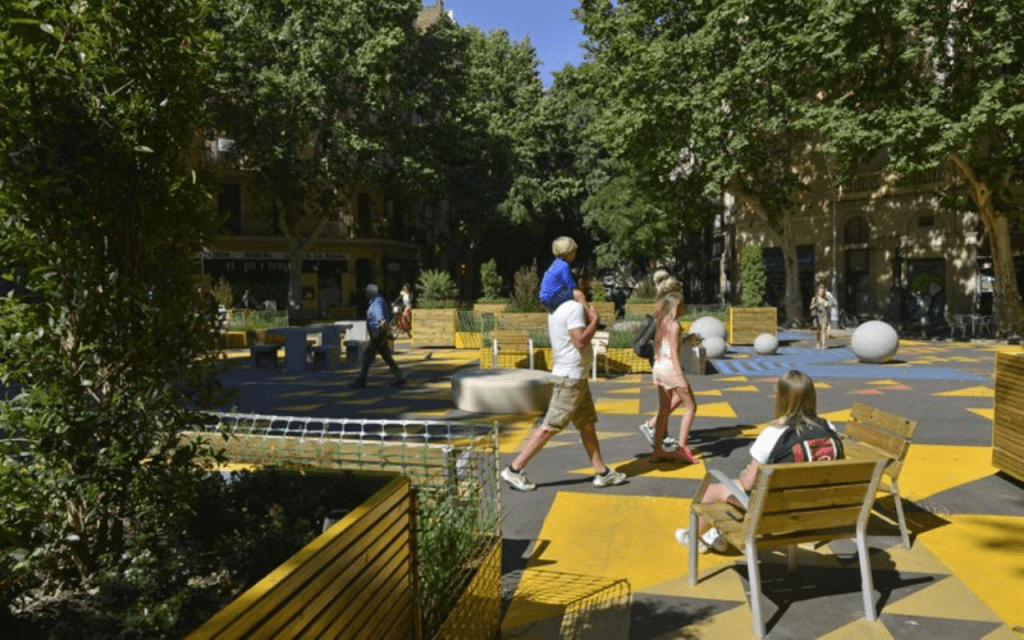
Furthermore, in a project that drew upon the environmentally-friendly ideas of the 15-Minute City, a scheme introduced in many places around the world (from Paris and Lagos to Singapore and Melbourne), Colau introduced initiatives to empower neighbourhoods and local life with the aim of creating an urban structure in which people’s daily necessities and services, such as work, shopping, education, healthcare and leisure, could be easily reached via a short walk or bike ride from any point in the city. At the same time, she embarked on a publicity campaign to encourage people to leave their cars at home and use Barcelona’s excellent public transport system.
In 2021, her council enacted a moratorium on issuing Airbnb licences in the city, thus reducing the huge rise in tourism that had been turning certain parts of the city into something akin to a tawdry, booze-fuelled theme park. A place where locals were forced to fight for space alongside hordes of gawping tourists grazing on cheap tapas and with raucous stag parties parading up and down La Rambla. Limiting the spread of Airbnb also increased the dwindling supply of long-term rental accommodation for Barcelona dwellers.
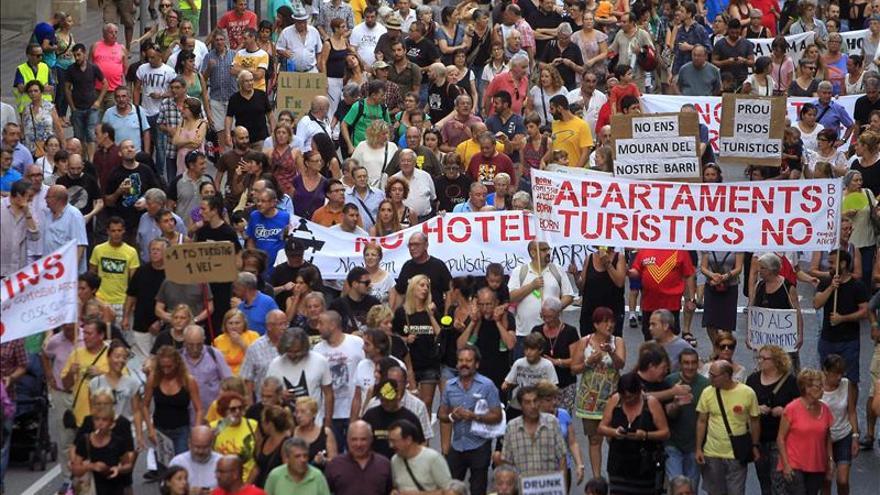
The city council also launched Barcelona Energia, an electricity supplier providing power at a reasonable price to the city’s inhabitants, and in another move to help out poorer citizens, created a subsidised dental service. Last but by no means least, a network was set up to help people suffering from mental health problems, particularly in the wake of the Covid lockdown and restrictions.
As a result of this formidable attempt to reduce pollution, re-green the city and solve a whole range of Barcelona’s ingrained social problems, one would have expected its citizens to heap accolades and applause on Colau’s council. However, while she has been warmly praised by the EU and the UN, who have commended Barcelona City Council as an innovator in the fight against climate change, this has not been the case in the city itself.
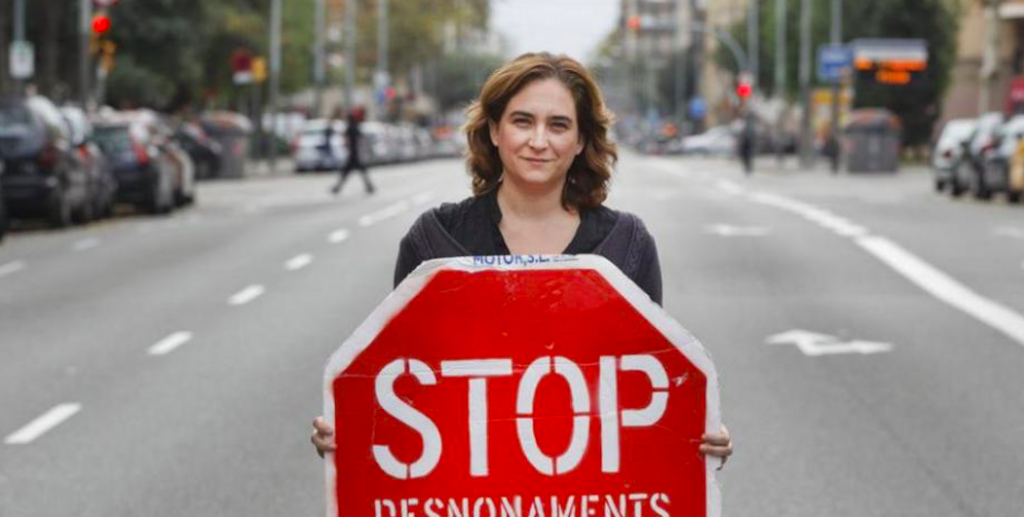
This might seem strange until we remember that during her eight years in office, Colau has been locked in a permanent, often hostile stand-off with the city’s corporate and political elites, who, rather than solving the city’s social and environmental problems are far more interested in doing what they have always done – siphoning off as much cash (and particularly of the public variety) as they possibly can. And because these same elites own many of the main media organs, positive mentions of Colau’s accomplishments in the mainstream media have been few and far between.
Her efforts are generally ignored by the TV and newspapers, which means that unless people bother to Google around for further information on the subject, most of them have little idea about what her council is actually working on in the city.
What people do tend to learn about Colau from the media, however, is driven by a constant negative bias. They learn that she is forever being bombarded by accusations and charges of corruption and misuse of public funds. It hardly matters that every single one of these indictments is thrown out of court by the judge, since for the average incurious news consumer, those people who simply watch the TV news over lunch or just skim through the newspaper headlines, the message they receive, time and again, is that Colau and her council are always in the courts, contesting legal injunctions, and as we all know, the conventional thinking goes, there’s no smoke without fire …
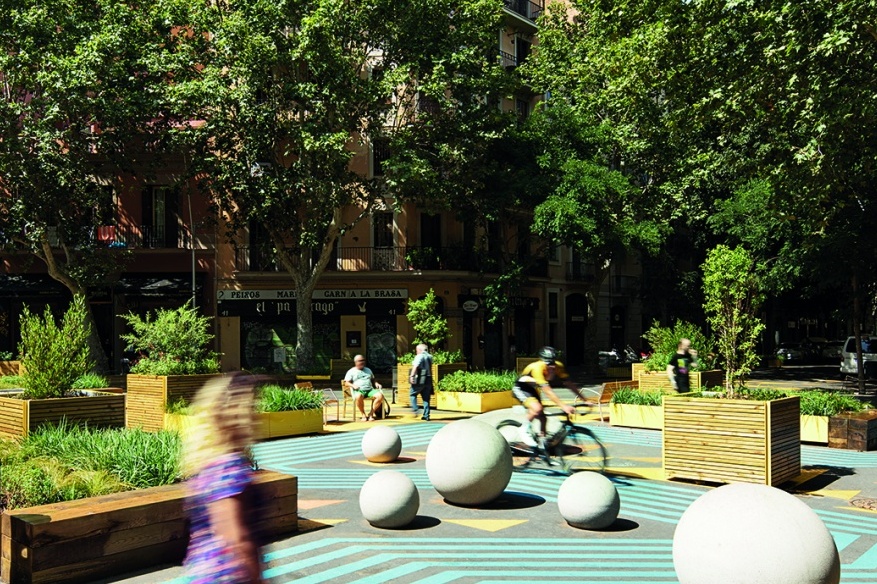
Thus all her political mis-steps are raked with media spotlights, while most of her successes are disregarded and left to vanish into the ether, and this creates a public perception that can be just as absurd as it is depressing: if you listen to conversations in bars, many people seem convinced that it is Colau, rather than the on-going economic downturn and worsening mental health crisis, who is personally responsible for the rise in homeless people on the city’s streets, and the image of these unfortunate individuals sleeping in doorways is capitalised upon by the political media to highlight the general conviction (as reported to me by the opinion pollster Carmen) that the city has become a hotbed of danger and menace.
This perception is only aggravated by the morbid fascination shown by TV news reports for the relatively few cases of violence that occur in the city. No wonder so many older people choose to stay at home after nightfall.
Meanwhile, Colau’s attempt to reduce car use in the city has collided head-on with Spanish car culture. As far back as the 1940s, Salvador Dalí spoke for a nation when he declared that, ‘Any man over the age of 40 travelling on public transport is a failure.’ This is a belief that continues to be deeply ingrained in the Spanish psyche – the idea that a man who does not own a car is a very poor specimen indeed.
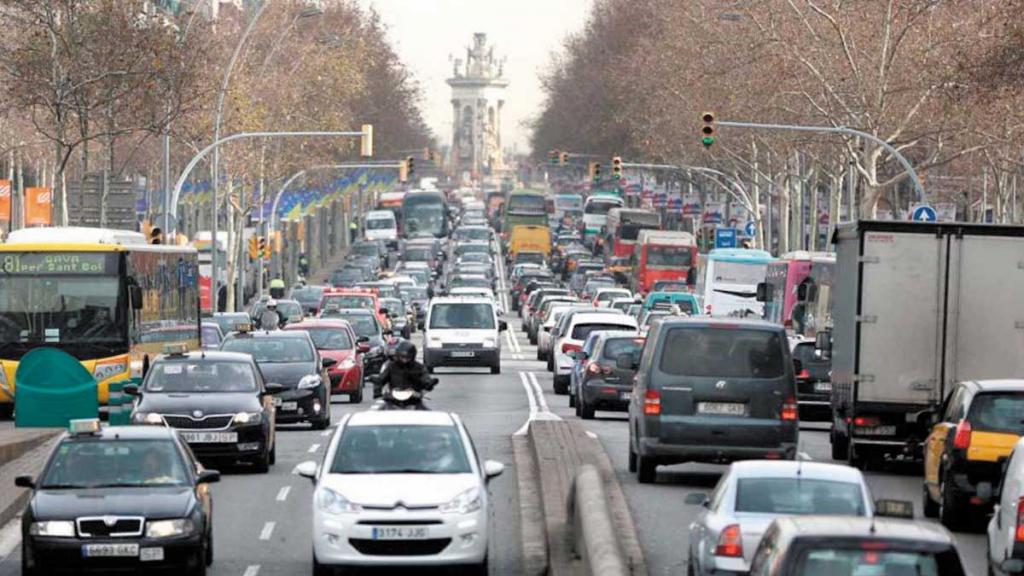
I recently (and rather unwisely) tried to intervene in one of these pro-car, anti-Colau debates in a local bar by quoting something I’d read that had stuck in my mind: ‘A developed country,’ I told them, ‘is not a place where the poor all have cars. It’s where the rich use public transportation.’ Everyone gazed at me in open-mouthed disbelief, aghast at such a ridiculous idea, one that could only have come from an ignorant foreigner who was clearly out-of-touch with reality.
All of the above is particularly topical right now because Spain will hold municipal elections on the 28 May, and it appears that in Barcelona, the drip-drip of media vilification has taken its toll on Colau’s popularity and her prospects for another term in office. According to the latest polls, her party Barcelona en Comú is neck-and-neck with two of Catalonia’s long-standing political forces – PSC (Partit de Socialistes de Catalunya) and Junts per Barcelona, the pro-independence party cobbled together out of the debris of Convergència i Unió, after the latter imploded as a result of (you’ve guessed it) shocking revelations of corruption.
Before Colau came along, power in the city council routinely flipped between these two parties, and it is not impossible, rumour has it, that in the event of a tie the two parties might somehow join forces to elbow Colau out of the political picture. This would be an enormous shame, to say the least, as if either PSC or Junts came to power, Barcelona would be in danger of returning to big business as usual, and Colau’s future-oriented transformations would be left to stall or be simply dismantled, and the city would once again be overrun by herds of vehicles belching out exhaust fumes, uncontrolled tourism and growing social inequality.
Even so, if the media and the traditional parties do succeed in forcing Colau out of office, there is one crucial factor that is not going to go away. Though we might not like to think about it, climate change is still in its infancy, and its effects will only intensify in the coming years. In light of this, there is some consolation in the fact that even if Colau is no longer around, the ideas and strategies of her city council will live on, as blueprints that can be adopted by future mayors and even governments.
Someday in the future, Barcelona may well realise what exactly Colau was trying to achieve, and maybe even offer up some belated thanks to this latter-day Cassandra.
Based in Barcelona, Michael Bunn is a British journalist and translator who has lived, worked and travelled all over Europe, SE Asia and the Far East.
If you’d like to contribute to our ‘Opinion, Blogs & Spanish Experiences’ section, please email us: editorial@spainenglish.com. We’d love to hear from you.
Sign up for the FREE Weekly Newsletter from Spain in English.
Please support Spain in English with a donation.
Click here to get your business activity or services listed on our DIRECTORY.

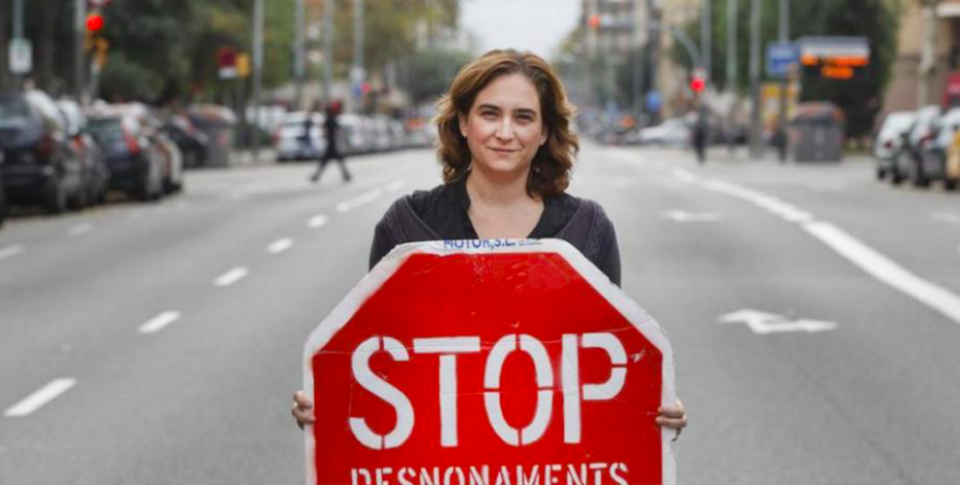


4 comments
Although I always thought that Colau was a bit of a demon, it was interesting to read some of the positive aspects of her reign. After eight years in the job, she appears to have achieved more than any other Spanish mayor. However, I can’t forget that the current legislation in Spain relating to ‘squatting’ is ludicrous and she supports it.
Thank you for this neat summary of Colau’s good points. I’ve always liked her (because she puts in so many bike lanes!) but struggled to find unbiased opinions. Such a shame she doesn’t get the credit she deserves.
Also failed to mention she’s been indicted and under investigation. Her defense? Who’s paying the lawyers? Really?
Funny you mention biased opinions and yours is precisely that. To commend what she has done well: Rooting out corruption in terms of the subcontractors hired by the city. None the less, this lady has a foundation in which she refuses to fully disclose it’s financial activities. Raises some question marks around the character which she exposes to the public. First off, her policy isn’t anti-eviction .Leaving in the bit with the banks taking over homes in the 2010’s and incorrectly relating it to the current situation is appalling. Her policy is in favor of squatters outright. A disgrace in any other country in the world. While it is true that Barcelona has been a desirable city and become increasingly competitive to live in, her approach to find people homes is completely backwards. Her lack of desire to increase productivity in the city is what has cause such disparities in wages, in a time where the city should push towards productivity she pushes for complacency. Good luck with that. Her green initiatives have been good for pedestrians and have become an absolute logistical nightmare for trucks and everyone else delivering goods to the city. Last I checked, stores don’t restock by means of public transport. The way it’s headed, it seems the city won’t realize until people can’t find what they’re looking for in their regular stores. Barcelona public transport always has been well connected(coming from a person without any form of drivers license at age 22). Barcelona also heavily relies on tourism for it’s economy, for all those that want to get rid of tourism: It will never go away, and if it did, the city would be in disarray. Finally, I cannot believe you can state one has never felt safer in this city. It’s a flat out lie. I know I don’t. My family doesn’t, my friend, neither. For a city with such a high police per capita, Barcelona has had an increase in violence and theft. It has gotten to the point where legislation and police are so weak the departments cannot properly function in favor of the few. I cannot emphasize enough the unlawfulness in the city. Friends and family threatened, beat up, jumped, etc… It’s a flat out disgrace to defend this woman as if she’s doing good work without acknowledging her large short comings. Such as her promises to vote on legislation in the city and then going on to not vote on any of it. I don’t believe for second you’ve been living here, instead it seem you’re just pushing the agenda of women in politics. This should be taken down.